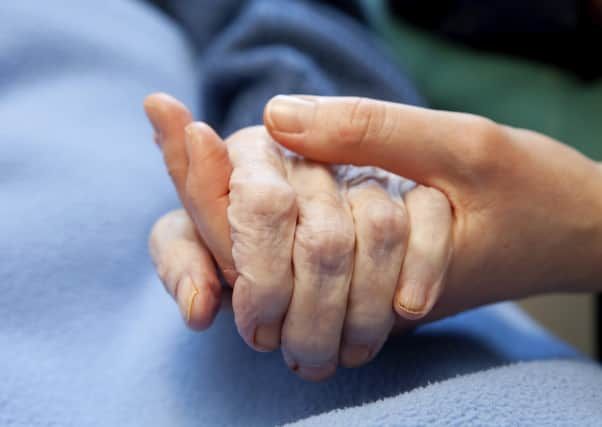Young carers in Scotland to receive £305,000 funding boost


Health Secretary Jeane Freeman announced the funding as she paid tribute to the 29,000 teenage and child carers who, she said, will have experienced an “especially tough” lockdown compared with other young people.
The funding comes at the start of National Carers Week, just days after the government announced a one-off payment for unpaid carers of at least £460.20 this month.
Advertisement
Hide AdAdvertisement
Hide AdTwo thirds of the £300,000 will go to charity Young Scot to boost its Young Carers Package, which provides online entertainment subscriptions and e-vouchers for young people affected, while £100,000 will go to expanding the government’s Time To Live grants scheme, which is managed by local carers centres and pays young carers £305 a year.
Announcing the funding, Ms Freeman said: “Around 690,000 people across Scotland are carers. The Covid crisis will have been a very difficult time for them, worried about their own health and the health of those they care for. Those worries will have been heightened by not being able to physically meet other people during lockdown and could also have been accompanied by concerns about employment and future prospects but I want all carers to remember that help is available and to seek support if you need it.
“There are 29,000 young carers in Scotland, young people aged 18 or less, who provide care for someone else. In many cases young carers have fewer opportunities than other people of their own age, as they have more responsibility and less free time. We already provide a small, young carers grant, for carers aged between 16 and 18 who care for more than 16 hours a week, but we recognise that the outbreak will have been especially tough for many young carers, many of whom won’t have been able to take a break from their responsibilities at all.
“This funding will help to provide vouchers and subscription packages to improve carers’ quality of life and allow us to expand our small grants scheme, Time to Live. It’s a small but significant way we can support young people while they support family members and loved ones.”
Scotland’s National Clinical Director Jason Leitch said many people did not consider themselves as carers but said Carers Week was a chance to recognise their hard work. “It is incredibly important carers are able to access the support they need if they are able to continue with their vital role,” he said. “The Scottish Government is in regular contact with Carers Scotland and others to ensure carers are getting the right help.
“Caring can lead to feelings of loneliness and isolation, feelings which can be magnified by this virus and physical distancing, so we’ve launched the Clear Your Head campaign, which highlights the practical things people can do to feel better and also stay in.”
Data released to mark the start of Carers Week estimates that 4.5 million more people in the UK are caring for friends or family as a result of the pandemic – on top of 9.1 million people who were already caring for loved ones before the crisis began.
It found that, while some will now be helping with food shopping, collecting medicine, managing finances and providing reassurance and emotional support during the pandemic, others will have taken on “intense caring roles” such as helping with personal care, administering medication and preparing meals.
Advertisement
Hide AdAdvertisement
Hide AdSix charities supporting Carers Week are calling on the UK Government to deliver a plan for social care reform and set out long-term investment in care and support services to give unpaid carers the opportunity to take breaks and stay in paid work if they want to. The charities also want an increase in carer’s allowance, currently £67.25 a week.
Helen Walker, chief executive of Carers UK, said the data showed the scale of the care being provided behind closed doors. She added: “Unpaid carers are the pillars of our health and social care systems. Yet many say they feel invisible and ignored.
“There are thousands caring round the clock without the practical support they would normally rely on to take a break, while others face increased costs accessing food and care products.
“The government must not take unpaid carers for granted in this crisis. It must ensure their physical and mental health is looked after and it is imperative that, moving out of the pandemic, it rebuilds our care system so that carers are supported and families have the services they need to live better lives.”
The six charities supporting Carers Week are Carers UK, Age UK, Carers Trust, Motor Neurone Disease Association, Oxfam GB and Rethink Mental Illness.
The research, based on a YouGov poll of 4,557 adults, found that 410 respondents had started giving unpaid support to someone since the outbreak, while 774 people said they had been caring for someone before the pandemic began.
Comments
Want to join the conversation? Please or to comment on this article.